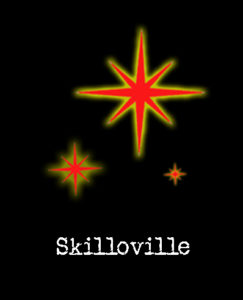Notes – “In the Field”, “Good Form”, and “Field Trip”:
“In the Field” sheds new light on the phrase “in the shit.” The shining beam of a soldier’s flashlight pointed at a picture of the soldier’s girlfriend is enough of a beacon to draw a rain of mortar fire on the shitfield of ancient human excrement. In “Good Form”, the narrator again establishes the tone of author, and expresses the need to make the reader really feel what he’s been through. He explains the act of writing as a way to relive experiences and reevaluate perceptions.
In “Field Trip”, the narrator is illustrated as desirous of closure twenty years after the incident in the shitfield. He returns to Vietnam, now a writer and a father, with his daughter who cannot understand what the narrator’s motives are for making the trip. As the narrator explains the moral, that nobody listens, throughout the writing, and you had to be there to understand.
Quotes – “In the Field”:
“[Lt. Cross] preferred to view his men not as units but as human beings. And Kiowa had been a splendid human being, the very best, intelligent and gentle and quiet-spoken. Very brave, too. And decent.” (157)
“After a second he hauled up a scummy green rucksack.” . . . . “The pack was heavy with mud and water, dead-looking. Inside were a pair of moccasins and an illustrated New Testament.” (159)
“. . . Kiowa had been combined with the waste and the war.” (162)
“Like murder, the boy thought. The flashlight made it happen. Dumb and dangerous. And as a result his friend Kiowa was dead.” (163)
“‘Billie’s picture. I had it all wrapped up, I had it in plastic, so it’ll be okay if I can … Last night we were looking at it, me and Kiowa.’” (165)
“‘Well,’ Henry Dobbins said, ‘it could be worse,’ and Dave Jensen said, ‘How, man? Tell me how.’” (167)
“They felt bad for Kiowa. But they also felt a kind of giddiness, a secret joy, because they were alive, and because even the rain was preferable to being sucked under a shit field, and because it was all a matter of luck and happenstance.” (168)
“‘Nobody’s fault,’ he said. ‘Everybody’s.’” (168)
“The boy wanted to confess.” . . . . “The flashlight had done it. Like a target shining in the dark.” (169)
“When a man died, there had to be blame.” (169)
“In the field, though, the causes were immediate.” (170)
Quotes – “Good Form”:
“Right here, now, as I invent myself, I’m thinking of all I want to tell you about why this book is written as it is.” (171)
“I want you to feel what I felt. I want you to know why story-truth is truer sometimes than happening-truth.” (171)
“. . . twenty years later, I’m left with faceless responsibility and faceless grief.” (172)
“What stories can do, I guess, is make things present.
I can look at things I never looked at. I can attach faces to grief . . .” (172)
Quotes – “Field Trip”:
“‘I think this place stinks. It smells like … God, I don’t even know what. It smells rotten’” (174)
“‘Sometimes you’re pretty weird, aren’t you?’ . . . . ‘Some dumb thing happens a long time ago and you can’t ever forget it.’ . . . . ‘That’s weird.’” (175)
“She watched me unwrap the cloth bundle. Inside were Kiowa’s old moccasins.” (177)
“Leaning forward, I reached in with the moccasins and wedged them into the soft bottom, letting them slide away. Tiny bubbles broke along the surface.” (178)
“. . . I wondered if the old man might walk over to exchange a few war stories, but instead he picked up a shovel and raised it over his head and held it there for a time, grimly, like a flag . . .” (179)

